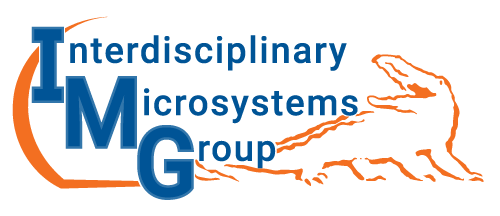The agenda for this week's seminar is the following:
11:55 am: Zoom meeting starts.
12:00 pm - 12:25 pm: Dr. Jennifer Andrew: Nanomaterials for Electronic and Medical Applications: An Overview of the Andrew Research Group
12:25 pm - 12:50 pm: Dr. Ann Ramirez: Machine Learning-based Prediction for Dynamic, Runtime Architectural Optimizations of Embedded Systems
Nanomaterials for Electronic and Medical Applications: An Overview of the Andrew Research Group:
Nanostructured materials and nanocomposites have the potential to overcome challenges in many areas of materials research, which cannot be addressed by more conventional single-phase materials. Additionally, the realization of certain properties at the nanoscale can also unlock new application spaces. In this talk, I will provide an overview of the various research projects in my group, including the use of magnetoelectric materials as low-power magnetic field sensors, as well as their potential for neural tissue engineering. Results will also be presented on the use of electrophoretic deposition for the fabrication of thick films of nanoparticles.
Machine Learning-based Prediction for Dynamic, Runtime Architectural Optimizations of Embedded Systems:
Embedded systems have been becoming increasingly complex over recent years, with performance becoming comparable to desktop computing systems. However, embedded systems need to adhere to greater design constraints (e.g., area and energy constraints) compared to desktop computing systems. Architectural specialization is a technique that can aid in meeting the stringent design constraints by introducing configurable hardware that can be tuned at runtime to optimize a goal (e.g., minimum energy, minimum execution time) for an application. However, traditional approaches (i.e., exhaustive, heuristic searches) often take considerable time to search a large design composed of different configurable parameters (e.g., cache size, associativity, etc.) and parameter values (e.g., 4 kB, 2-way, etc.). In addition, the presence of application phases (i.e., repeating execution behavior) allow for finer-grained tuning at the cost of even greater exploration overhead. In this paper, we apply machine learning to reduce/eliminate the design space exploration overhead associated with finding the best set of configurable parameters for configurable L1 instruction and data caches. Our prediction methodology consists of artificial neural networks (ANNs) which take the execution statistics of an application phase as input and outputs a best cache configuration (i.e., combination of configurable parameter values) for the instruction and data caches). Our results show that we can achieve an average energy degradation of less than 5% for the instruction and data caches with an average of 20% phase misclassification percentage and 20% less cache switches than the case where the best cache configuration is chosen for every application phase.

